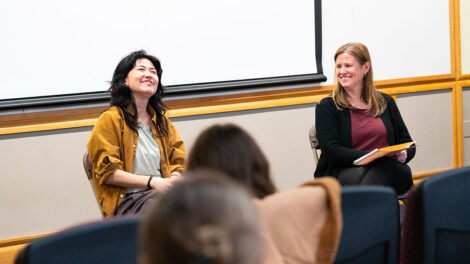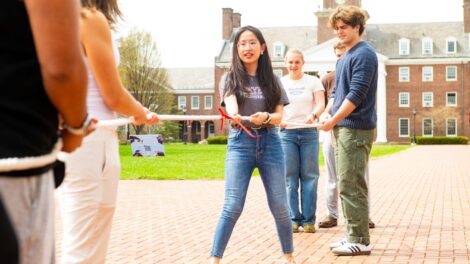Inside the classroom: Land Acts course combines practical and spiritual sides of land use
Video by Olivia Giralico
Inside the classroom is a new series offering a glimpse into classes at Lafayette, the talented professors who teach them, and how they impact and define a student’s experience.
By Bryan Hay
Gathered in the greenhouse at LaFarm, students in Prof. Kyle Keeler’s Land Acts (EVST 370) course silently huddle together before large stainless steel bowls brimming with delicate dried seed pods — Clemson spineless okra, wild bergamot, coneflower, and purple Kingsessing bean, a Lenape bean used for stews and bread.
Owen Taylor, a founder of Truelove Seeds, a Philadelphia-based farm-based heritage seed company, advises them on the gentlest of techniques to avoid damaging the seeds as the crunchy okra pods fell apart, revealing their peppercorn- like seeds, reminding everyone about how native people view food sources as more than a source of sustenance.
“Seed-keeping is a common human experience started 10,000 years ago,” he says, noting that the manual, meditative act of seed keeping creates a cultural and spiritual bond between humans and their food sources. When you handle seeds with reverence, it transcends their role as a food source and into something profoundly spiritual.
“Seeds tell stories,” Taylor says.
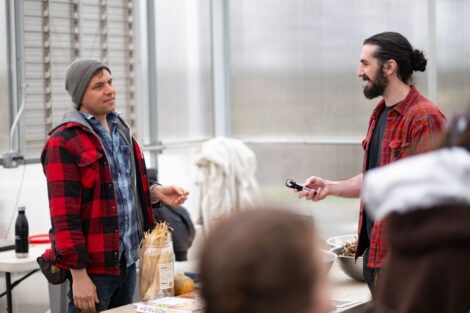
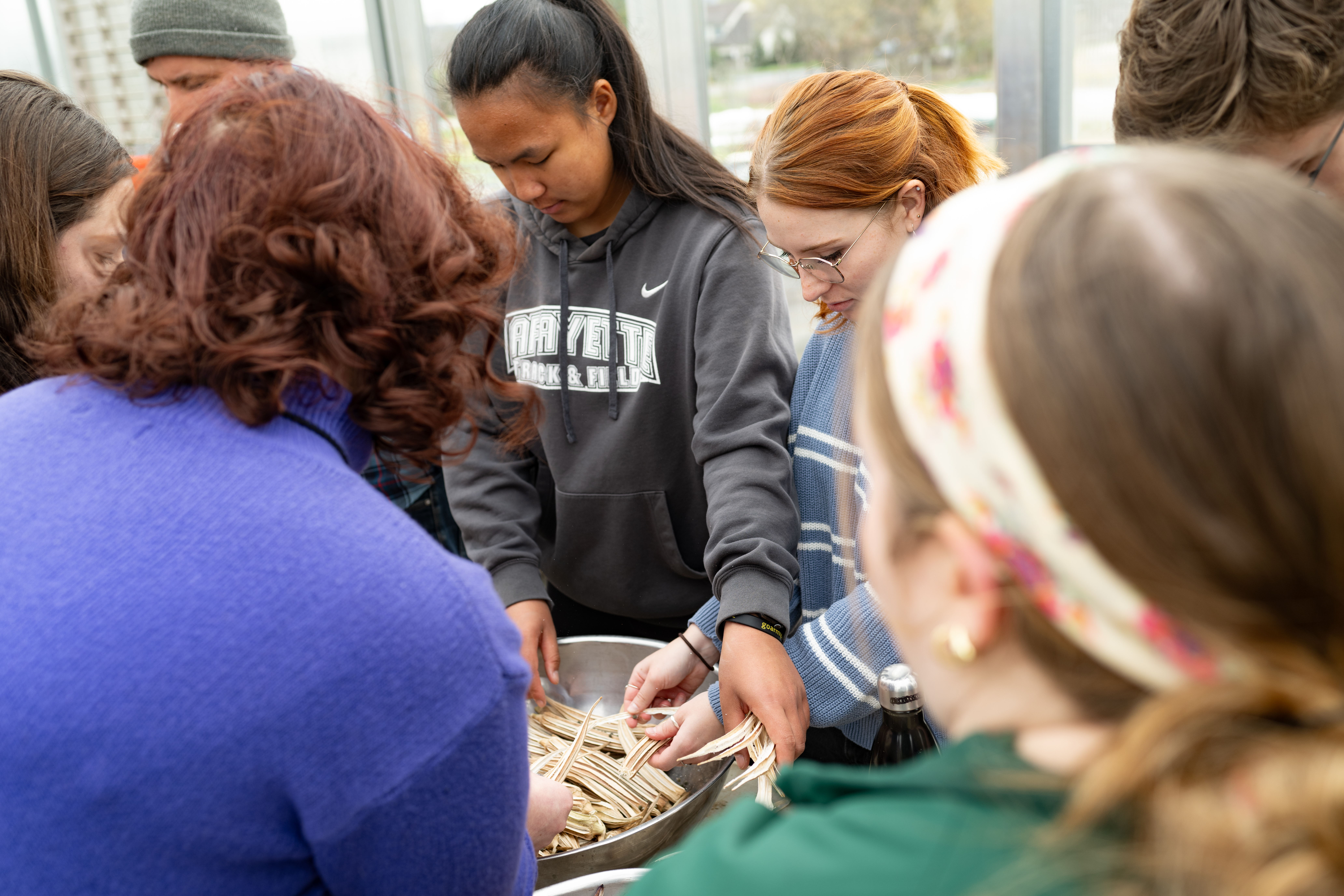
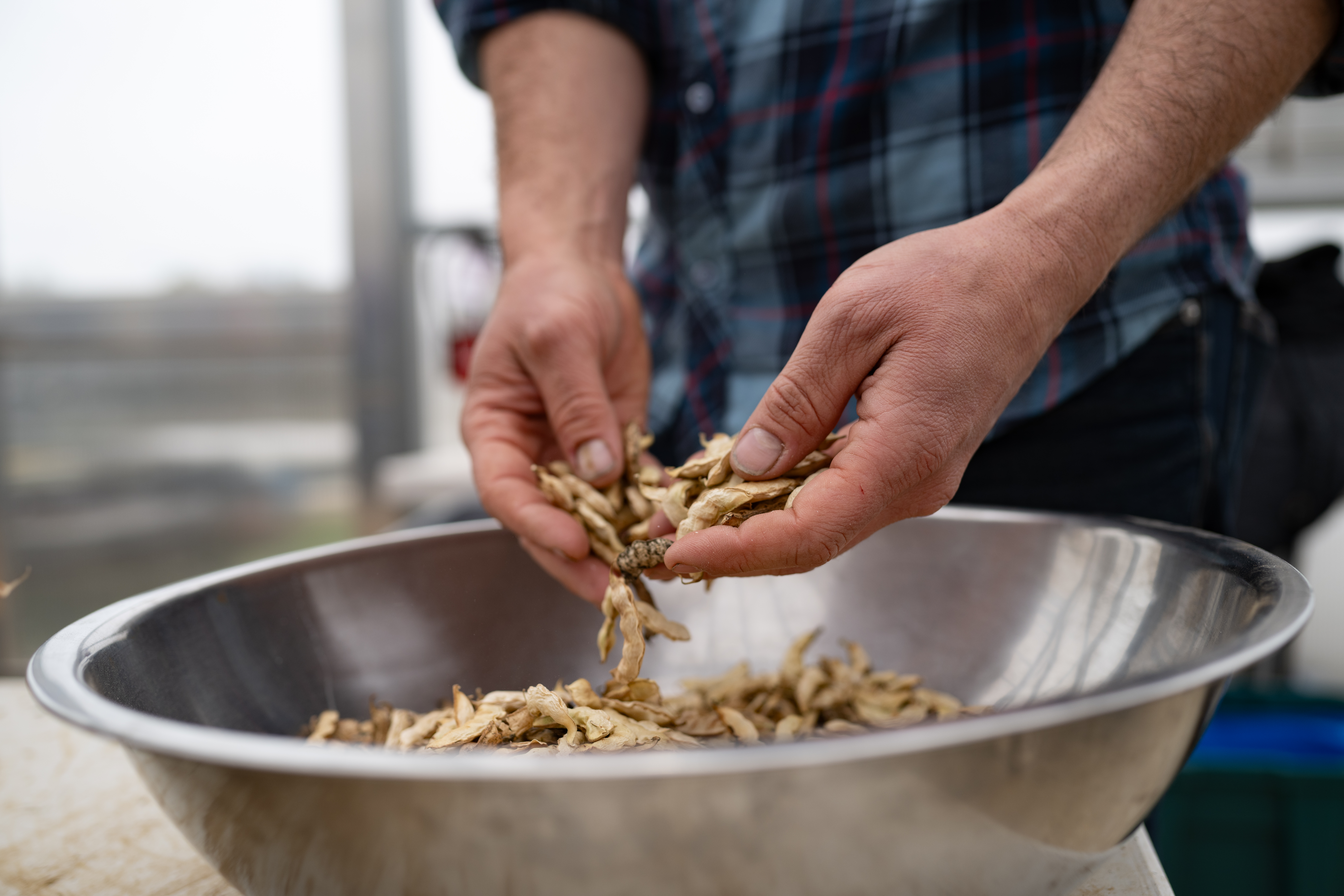
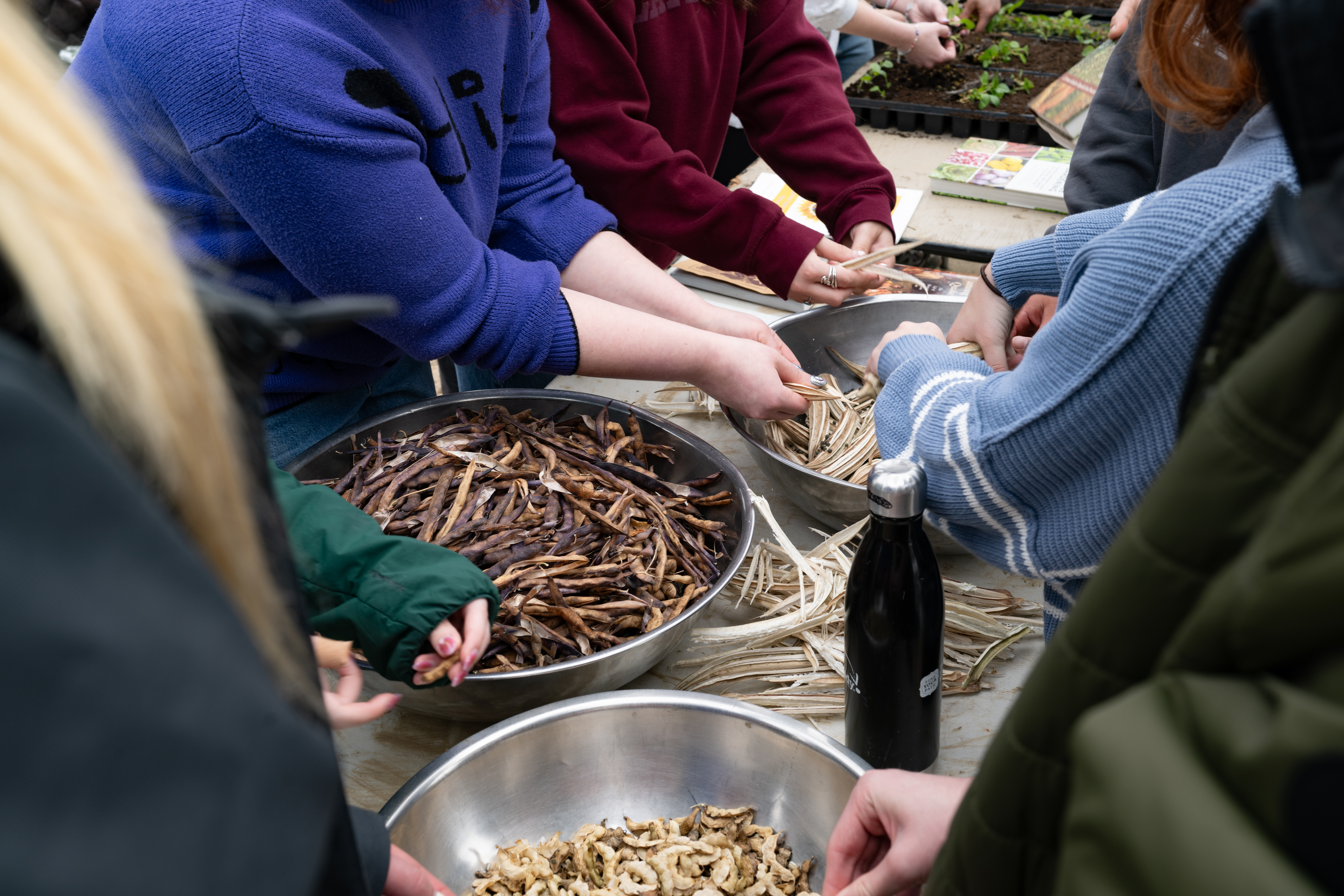
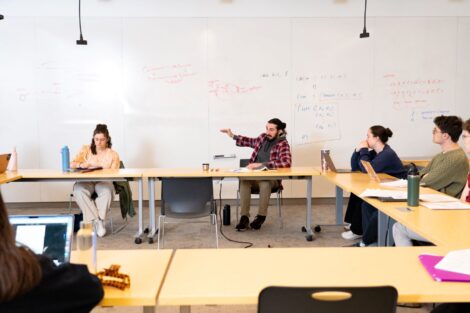
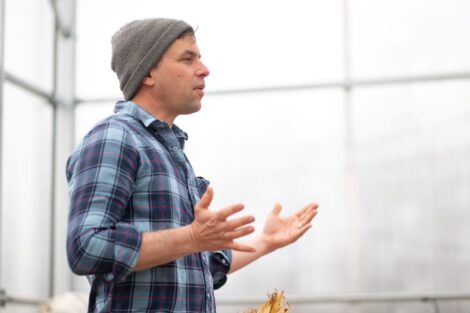
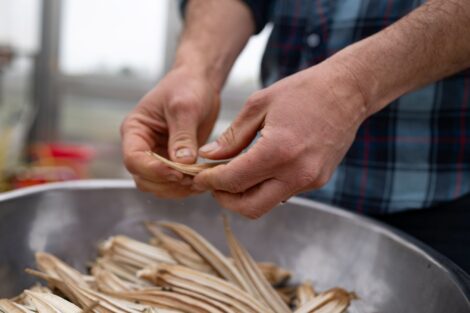
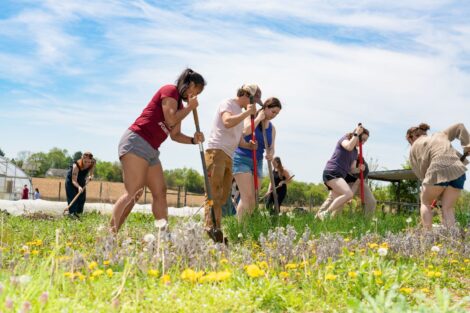
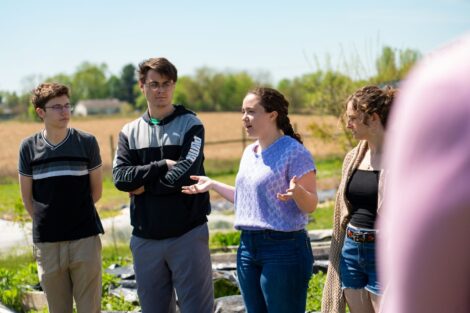
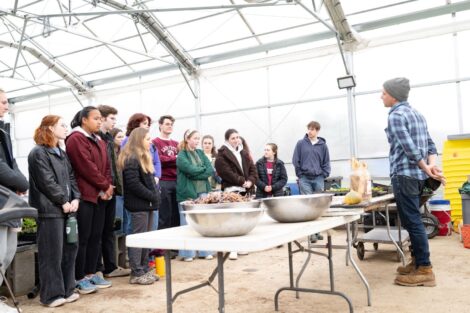
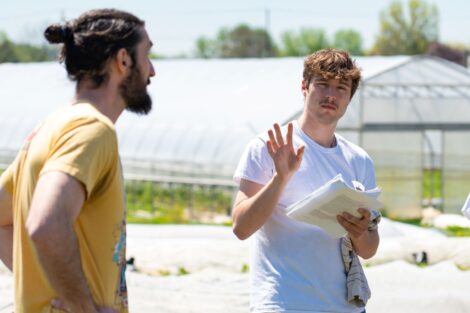
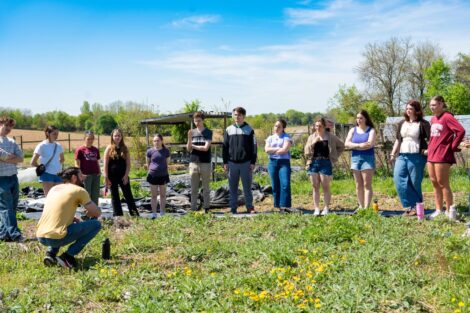
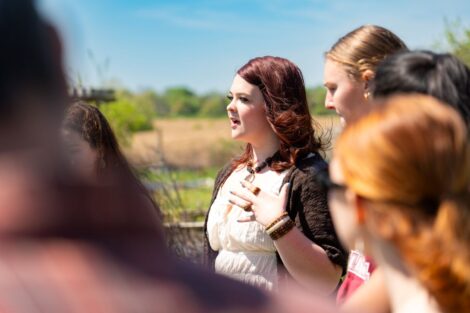
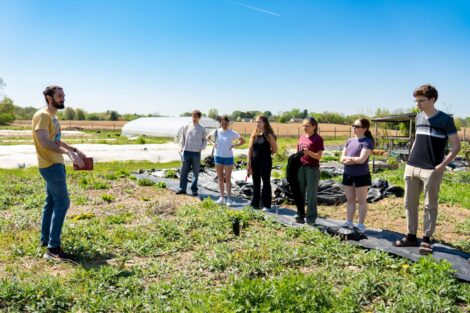
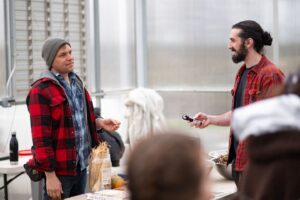



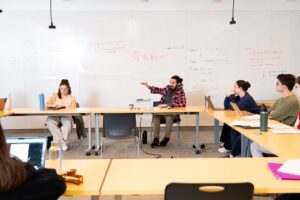
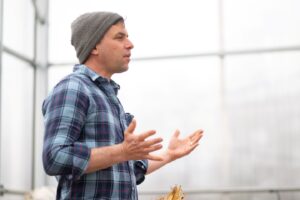
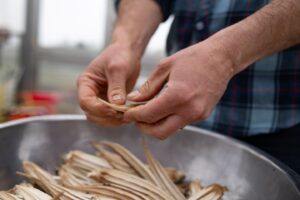
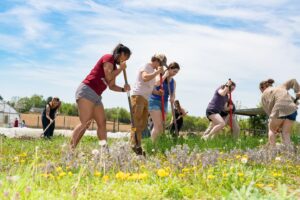
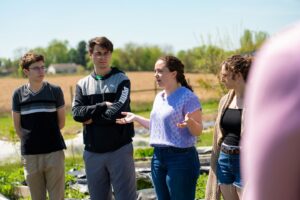
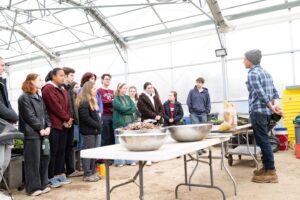
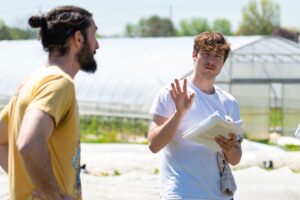
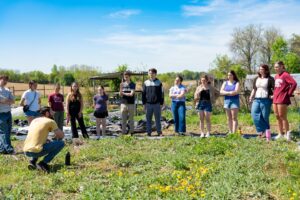
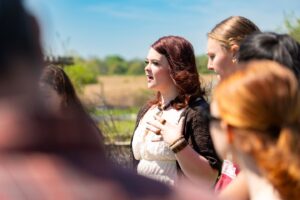
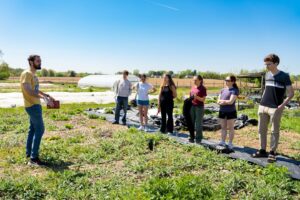
Shuttling between LaFarm and their classroom at Rockwell Integrated Sciences Center this spring, Keeler, assistant professor of environmental science and environmental studies, and his 14 students explored the relationship between land and climate change, with an emphasis on the active role of land in indigenous creation stories and its influence on culture and community.
With interests in native and indigenous studies and environmental humanities, Keeler had been working on developing and delivering this course for about four years. It included practical activities at LaFarm, such as mulching, composting, and planting, and featured guest lectures on seed saving by Taylor, Jeremy Johnson, cultural education director of the Delaware Tribe of Indians based in Bartlesville, Okla., and Katelyn Lucas, Delaware Nation’s historic preservation officer.
A bold and ambitious course goal is to grow crops native to the Lenni Lenape people, also known as the Delaware, who lived in eastern Pennsylvania for generations until their forced removal to Oklahoma in the 19th century. Native crops grown at LaFarm, on ancestral Lenape soil, including tobacco, beans, squash and other crops, will be shipped to the Delaware Nation of Oklahoma, returning their native Pennsylvania food to their tables and cultural consciousness.
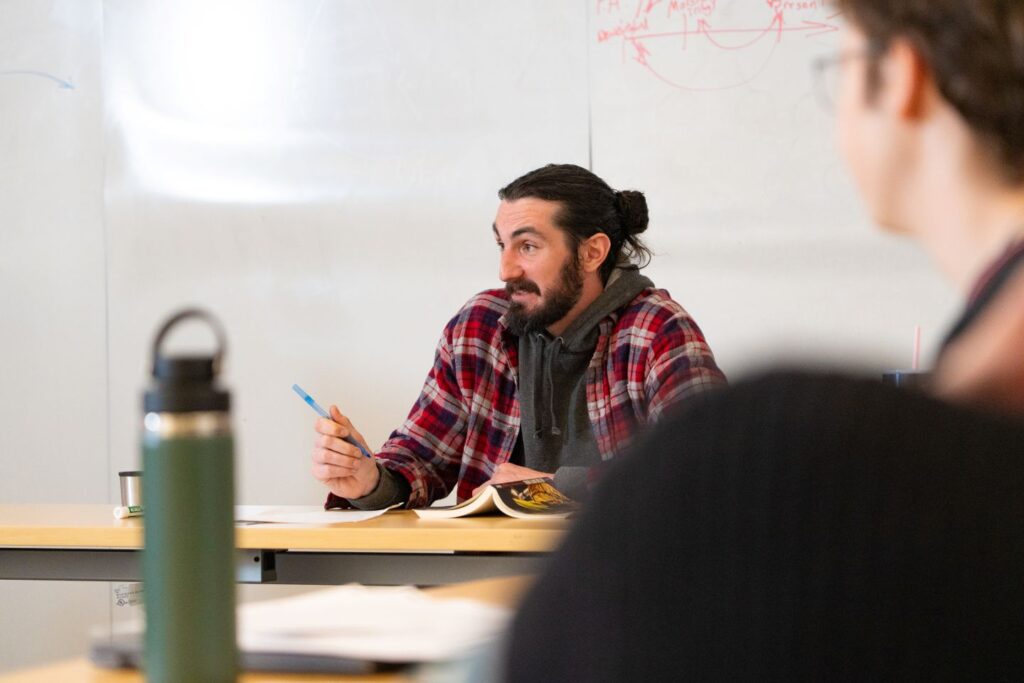
Kyle Keeler, assistant professor of environmental science and environmental studies | Photo by JaQuan Alston
“The classroom component begins with Haudenosaunee, Cherokee, and Delaware creation stories. I want students to understand how land is an actor, how land is an influence throughout history,” says Keeler, appreciating how his course attracted an interdisciplinary mix of students majoring in history, government and law, art, chemical engineering, environmental science, and environmental studies.
“Bringing together the humanities, social sciences, and the natural sciences makes the class that much better,” he beams.
“We start by laying the groundwork, the Haudenosaunee creation story where sky woman falls from the sky and lands on the back of the great turtle surrounded by water, and the muskrat brings clay up to the surface, and then that clay propagates itself across land,” Keeler shares. “You see a world created by non-humans and animals, and by the land itself. And that’s a radically different world view than the one we regularly inhabit in our day-to-day lives.”
Melding the creation stories and other readings and discussions from the classroom with the physical practices on the farm completes the circle.
“Once the beans, squash, tobacco, wild bergamot, and coneflower are grown and harvested, we will send them to the Delaware Nation so that they have a source of their sacred crops grown on their indigenous homelands,” Keeler says.
“Partnering with the Delaware Nation embodies the practice of seeing land’s agency and brings life into this world alongside land as a partner, which is something that’s often separated in our current society,” he explains. “If we think about industrialized agriculture as an example, there’s no thought and intentionality behind partnering with land to bring life into this world and what that means.”
Her hands deep in a bowl of crispy okra pods, Marin Rosser ’27 (geology, concentration in environmental geosciences and minor in environmental science) says she appreciates Keeler’s passion for teaching Land Acts and other indigenous studies courses she’s taken with him over the past three semesters.
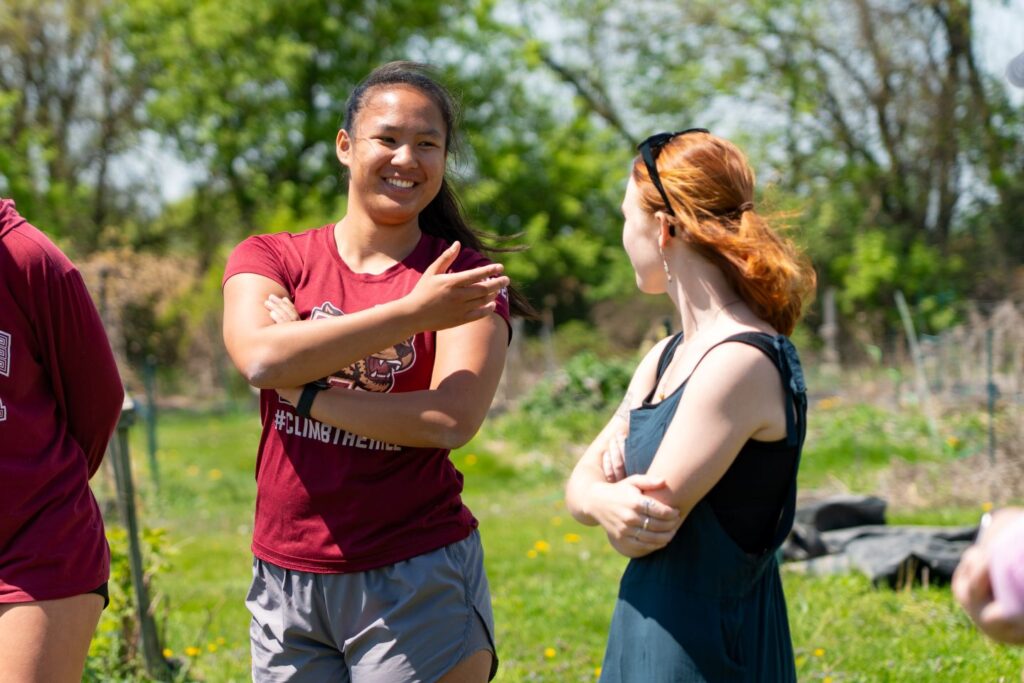
Marin Rosser ’27 appreciates Prof. Keeler’s passion for teaching Land Acts and how his teaching has broaden her view of the world. | Photo by JaQuan Alston
Her experiences with him helped her broaden her view of the world during her job last summer as a park ranger in North Dakota, working in close proximity to Native American reservations.
“We have the most wonderful open discussions about these very complex topics and how we view the land around us,” she says. “Something that’s really cool when we have these discussions is there’s no judgment. It’s very open. Everyone’s opinion counts, and Prof. Keeler encourages free and open exchanges of thoughts and ideas. I just love all my classmates; we all come from different backgrounds.”
Working with seed pods nearby in the greenhouse, Christian Muisener ’27 (environmental science) shares his appreciation of learning about the importance of agriculture and land, and connecting with it from different perspectives.
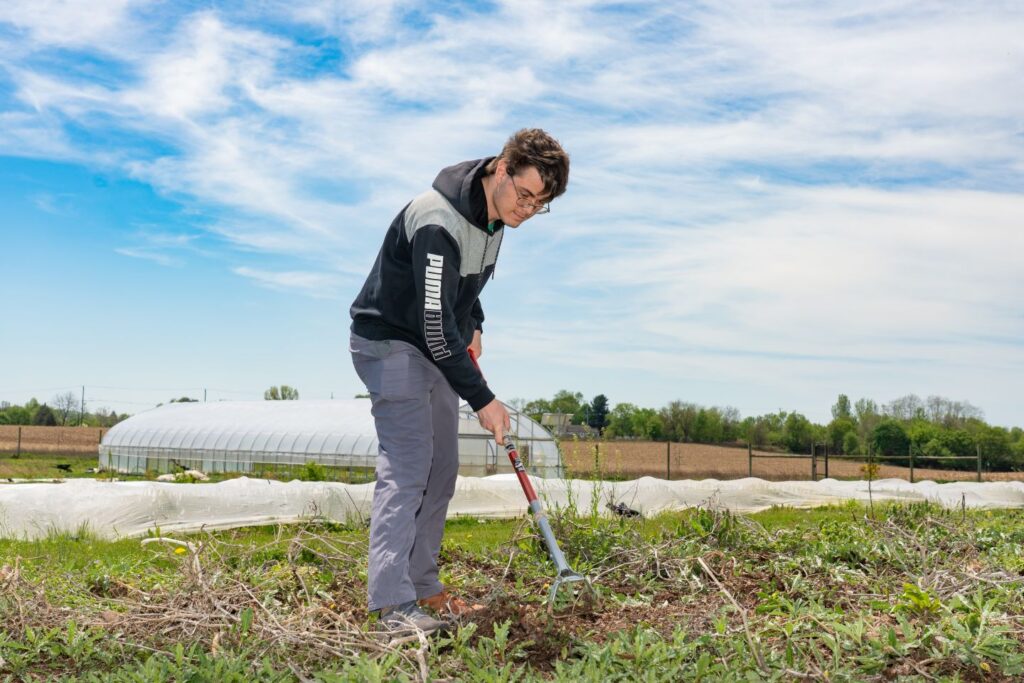
Christian Muisener ’27 says Land Acts has taught him to value how Native Americans view the land with respect and dignity. | Photo by JaQuan Alston
“Planting these seeds is really cool to me,” he says. “When we consider how Native Americans approach and view the land, we come to the understanding that the land is not just something to take for granted. It’s to be honored as part of the human family, part of our existence.”
